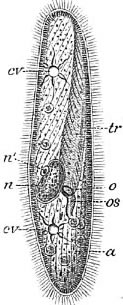- What is Science lab: A
considering of what makes science different, and how
science
works in
practice.
- In
Water lab: An introduction
to the properties of water, its behavior as a function of temperature,
and the diffusion of particles (Brownian motion). Can
be expanded through the use of the vScope to a more mathematical
analysis of molecular movements and their role in biological systems.
- Introduction
to E.coli lab: An
introduction to the basic techniques for handling bacteria in the
lab, including dilution and the measure of cellular growth using
both light scattering and plating.
- On
Growth lab: Characterization
of bacterial growth as a function of temperature and bacterial
survival as a function of time. Provides a context for both
Mutation and Adaptation labs.
- On
Mutation lab: An
introduction to bacterial viruses and how they were used by Luria
and Delbruck to distinguish between the
selection of pre-existing mutations (Darwinian) or the induction
specific traits (Lemarkian) processes.
The
lab introduces the types of changes that lead to resistance, and
could be expanded in this direction, to address questions
of viral adaptation to host and visa versa.
- On Adaptation lab: A study
of
how
bacteria
adapt to
various environment
conditions. future
lab
expansion
into ecological
and
evolutionary issues associated
with
niches
and
speciation.
|

|

